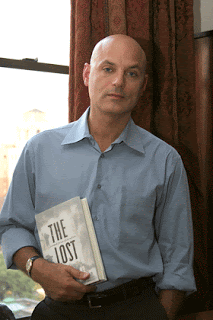
Each week, the NBCC will post a list of five books a critic believes reviewers should have in their libraries. We recently heard from two-time NBCC winner Daniel Mendelsohn. Here are the books hhe named:
1. Gore Vidal, “United States” (or any collection of his criticism). To my mind Vidal in his prime was an ideal critic: the cool brilliancy of mind, the tremendous erudition coupled with an astonishingly broad range of his tastes and enthusiasms, the acidulous, patrician wit (far more entertaining, and effective, as a literary weapon, than the dreary earnestness characteristic of so many other liberal writers), and above all the complete mastery of the essay form, the way he had of weaving the personal and the intellectual into something at once engaging and significant, make him a model for the professional critic.
2. Any of Pauline Kael’s collected volumes of movie reviews. This is serious American popular writing at its best. In particular there is much to be learned about *tone* and the role of the critic’s personality in her work—that ostensibly casual, conversational manner (the famously offhanded second-person singular), cloaking a ferocious intellect and fiercely idiosyncratic opinions, was a stylistic move that changed the way an entire generation approached writing about culture. But in the best of her writing, the ferocity of that memorable personality always serves the larger critical project—i.e., distinguishing what is good from what is bad—rather than distracting from it. In an era in which the unleashing of private passions about this or that movie or book for random public consumption has become a national pastime, it is edifying to see it done worthily and well—and professionally; and done in the service of an aesthetically serious and intellectually meaningful project. Extensive reading of Kael’s best work—passionate in its praise and blame, to be sure, but also rigorous in the way it brings a distinctive taste and considerable powers of mind to bear on any given object—suggests what the difference might be between having strong opinions about things, which we all do, and being a critic.
3. Aristotle, “Poetics.” Anyone engaged in the practice of literary criticism should take the trouble to see where and how it began. In particular, Aristotle’s analyses of what makes certain kinds of plots satisfying, and others not, are tremendously illuminating and still completely valid (why wouldn’t they be?); the work as a whole provides a clear-headed way of talking about the structural workings of literary texts (theater, poetry, whatever), which is particularly useful in an era still reeling from (to paraphrase Oscar Wilde) the worst excesses of the French (-theory) revolution.
4. Susan Sontag, “Notes on Camp.” Sontag’s groundbreaking volume still strikes me as essential reading for critics because it remains a model for the way in which a classically “high” kind of intellectual training, which all American literary and cultural critics must have (i.e., a deep education in, at least, European and American letters since Shakespeare and preferably earlier) may be brought to bear on what used to be thought of as “low” subjects, such as pop culture (and indeed aspects of culture that hadn’t, properly speaking, been the objects of a serious critic’s attention: in the case of Sontag’s book, a distinctive but hitherto indefinable subcultural sensibility). Now, of course, a great deal of serious criticism is devoted to pop culture and its metastasizing epiphenomena; Comp Lit departments have probably produced as many dissertations about Madonna as about “Moby Dick” over the past fifteen years. What makes Sontag’s book so remarkable is that you never feel that she’s just an egg-head who’s gone slumming; what’s moving is her clear conviction that her high training is precisely what permits her to write, with acuity and deep intellectual sympathy, about popular culture. This willingness to look at anything seriously—and on its own terms—is surely essential.
5. The two-volume Library of America edition of Henry James’ literary criticism (volume 1 is American and English authors; volume 2 is French and other European writers, and the Prefaces to the New York edition.) As we know, James wrote reviews and literary essays regularly for over fifty years, and however much I love numbers 1, 2, and 4 above, it’s never a bad idea to see what it looks like when a truly great artistic consciousness turns to the project of criticism—of himself (in the New York edition Prefaces) as well as so many others. What impresses most of all here is a quality that James admired so greatly in Sainte-Beuve and is exemplified in his own criticism—and which seems to me essential for all serious popular criticism—: a ‘very horror of dogmas, moulds, formulas.”
Daniel Mendelsohn, a frequent contributor to The New York Review of Books, is the author, most recently, of The Lost: A Search for Six of Six Million, which won the National Book Critics Circle Award and the Prix Médicis Étranger in France. He also won the NBCC’s Nona Balakian Citation for Excellence in Reviewing. A collection of his essays, mostly from the New York Review, will be published this year. He teaches at Bard.

